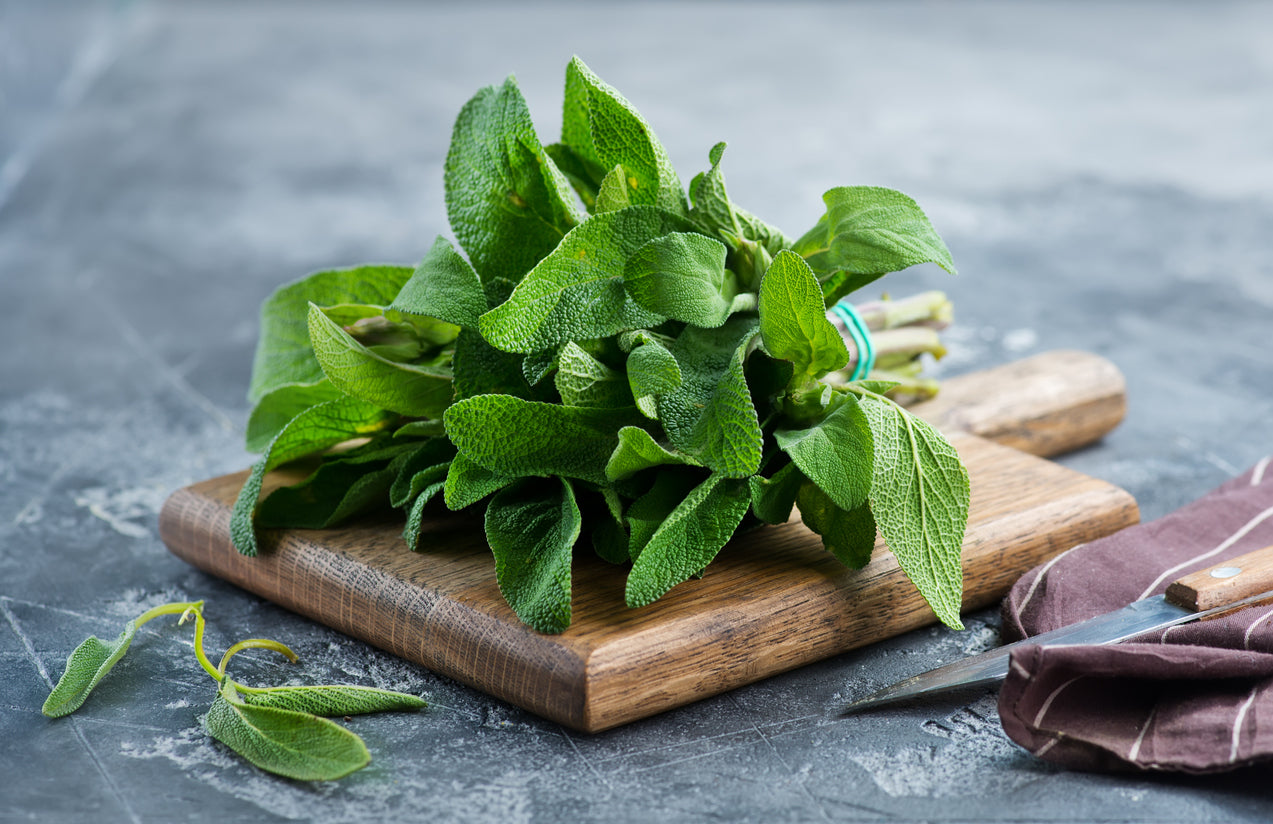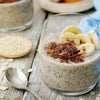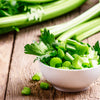Supercharge your brain function and protect the heart with sage

Sage is a popular kitchen spice beloved by chefs for its ability to add savory, robust flavor to recipes. This intriguing herb also has a long history of use in traditional medicine to help heal ulcers, rheumatism, gout, digestive upsets and high blood sugar. But, perhaps the most intriguing traditional use of sage is to promote better brain function and heart health.
Since antiquity, sage has been associated with learning. A person referred to as a “sage” is acknowledged to be profoundly wise, and “sage,” as an adjective, is synonymous with “judicious,” “prudent” and “sensible.” Now, recent research involving Alzheimer’s patients supports sage’s time-honored reputation as a neuroprotective agent and a brain-booster.
Sage improves memory and cognitive function in Alzheimer patients
Sage, botanically known as Salvia officinalis, is a member of the mint family. Like its cousins - oregano, thyme and rosemary - sage is packed with beneficial plant compounds such as caffeic acid, chlorogenic acid, rosmarinic acid, apigenin, luteolin, ellagic acid and rutin. These antioxidant compounds can scavenge harmful free radicals and protect the brain’s defense system.
Sage has been shown to inhibit the breakdown of acetylcholine, a neurotransmitter vital for memory and learning. Researchers have learned that patients with Alzheimer’s disease and dementia have lower levels of this important brain chemical.
In a study published in Journal of Clinical and Pharmacological Therapies, patients with mild to moderate Alzheimer’s disease were given 2 ml of sage extract, or a placebo, daily for four months. The researchers found that the sage group performed better on tests measuring memory, problem-solving, and reasoning. And, a separate study published in Psychopharmacology showed that sage extract significantly enhanced memory and improved accuracy of attention in elderly adults.While more study is needed, the research highlights sage as a potential natural treatment for neurodegenerative brain conditions and age-related cognitive decline.
Sage tea improves cholesterol profiles and supports heart health
In a study published in International Journal of Molecular Science, researchers found that volunteers who drank two cups a day of sage tea for four weeks experienced increased activity of natural antioxidants – such as glutathione – in the body. In addition, the participants had lower levels of harmful LDL cholesterol and higher levels of beneficial HDL.
Sage’s generous content of vitamin K may be responsible for the herb’s heart-healthy effects.
In fact, just one teaspoon of ground sage contains 10 percent of the reference daily intake of vitamin K, which is essential for proper blood clotting. Scientists have recently discovered that vitamin K discourages calcium-laden plaque deposits - and the development of atherosclerosis - by keeping calcium out of the bloodstream and in the bones, where it belongs.Sage offers anti-aging “gifts” to skin
Believe it or not, sage can promote smoother, less wrinkled skin.
Clary sage, a specific variety of sage, contains a constituent known as sclareol. In a laboratory study published in Journal of Cosmetic Dermatology, scientists found that sclareol blocked the death of skin cells from ultraviolet light, thereby inhibiting the photoaging which causes skin wrinkles. And, a clinical trial showed that sclareol-containing cream significantly reduced wrinkles on human volunteers.
Sage also contains antifungal ingredients - such as camphor and camphene – which can help combat skin infections. Essential oil of sage, when mixed with a carrier oil and applied to the skin, can help combat stubborn cases of “athlete’s foot” - and may help prevent secondary infections in atopic dermatitis and eczema.
This versatile spice can be used in many forms
Sage leaves may be used either fresh or dried.
Use sage to accentuate the taste of poultry, lamb, fish and beef – or give it a starring role in a classic sage stuffing. Fresh sage leaves can also be combined with melted butter or olive oil to create a tasty dipping sauce for bread.
You can also brew sage tea by pouring a cup of boiling water over a tablespoon of sage leaves, steeping for a few minutes and then straining, cooling and serving. For even more antioxidant “bang for the buck,” sweeten with honey and add a splash of lemon juice.
And, yes, sage is also available as a supplement in capsule and liquid form.
Clearly, sage is a flavorful, versatile spice with an impressive array of therapeutic uses. For example, you may be surprised to learn that in a 2017 review of studies, the investigators concluded that sage has potential anticancer, anti-inflammatory, pain-relieving, antimicrobial, anti-diabetic, anti-dementia and cholesterol-lowering effects. That's quite a list, isn't it?!
No doubt, there is so much more to learn about the healing power of plants. Enjoy the journey!
Sources for this article include:






